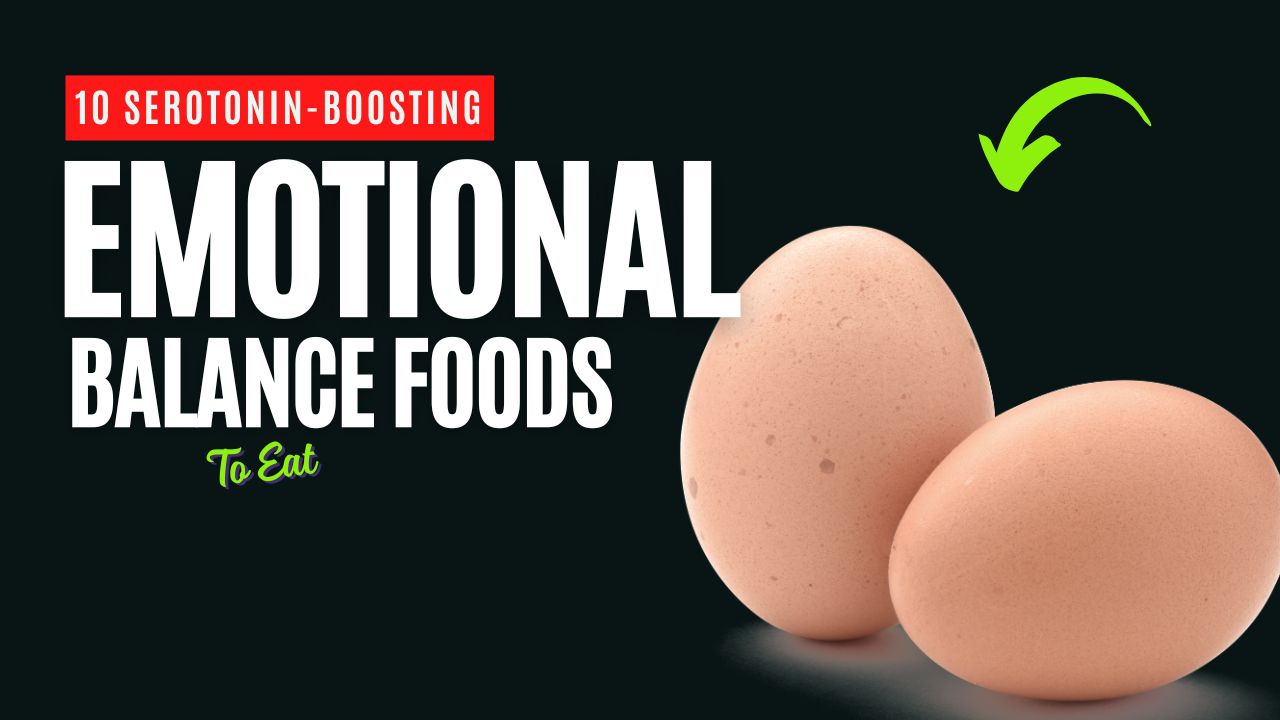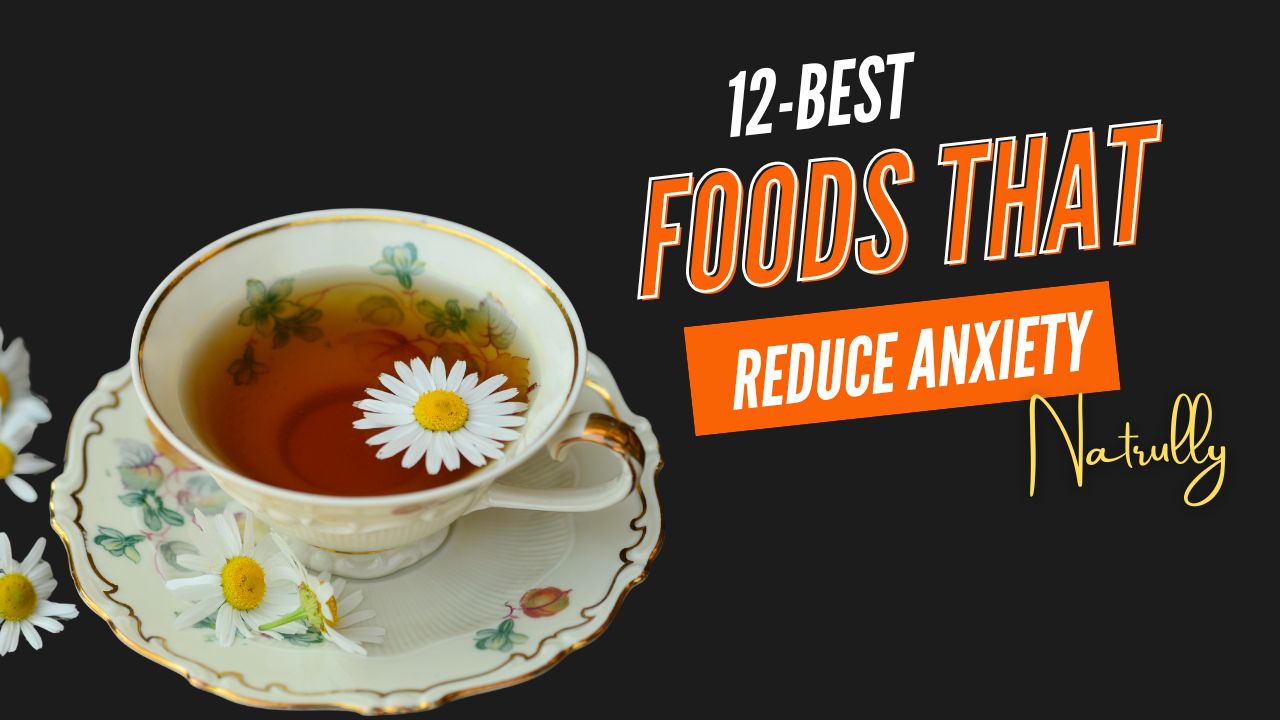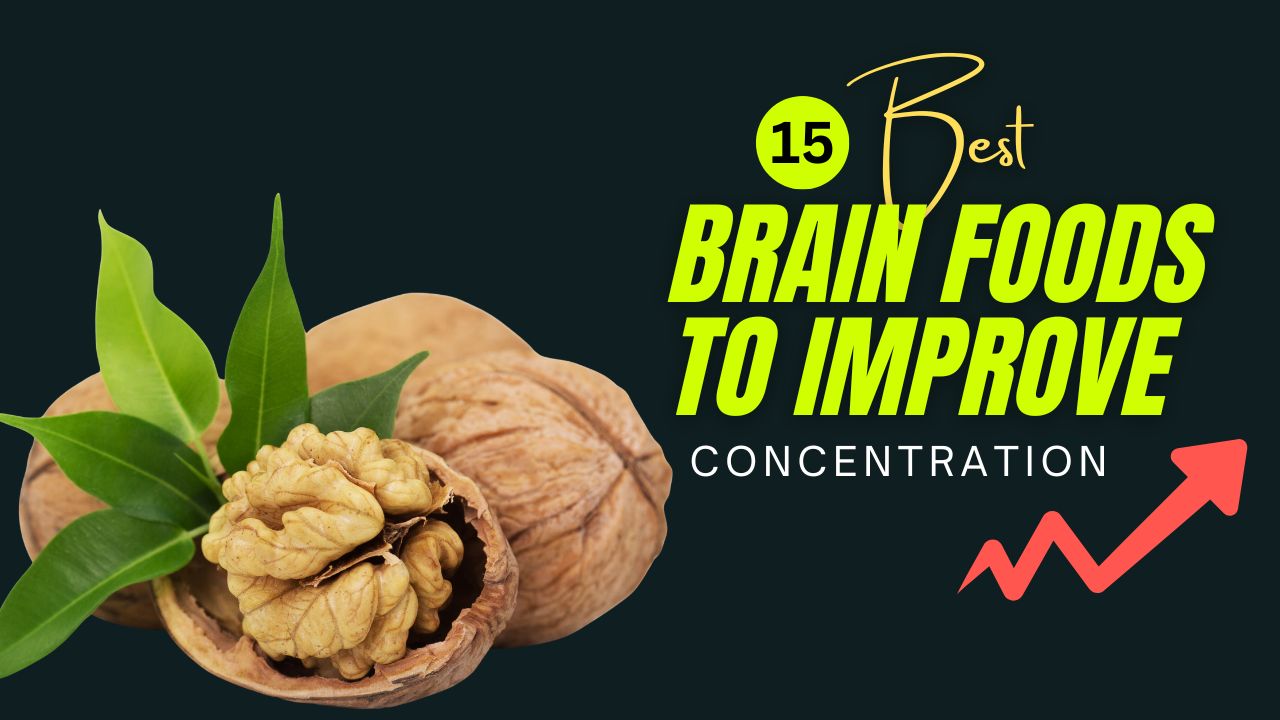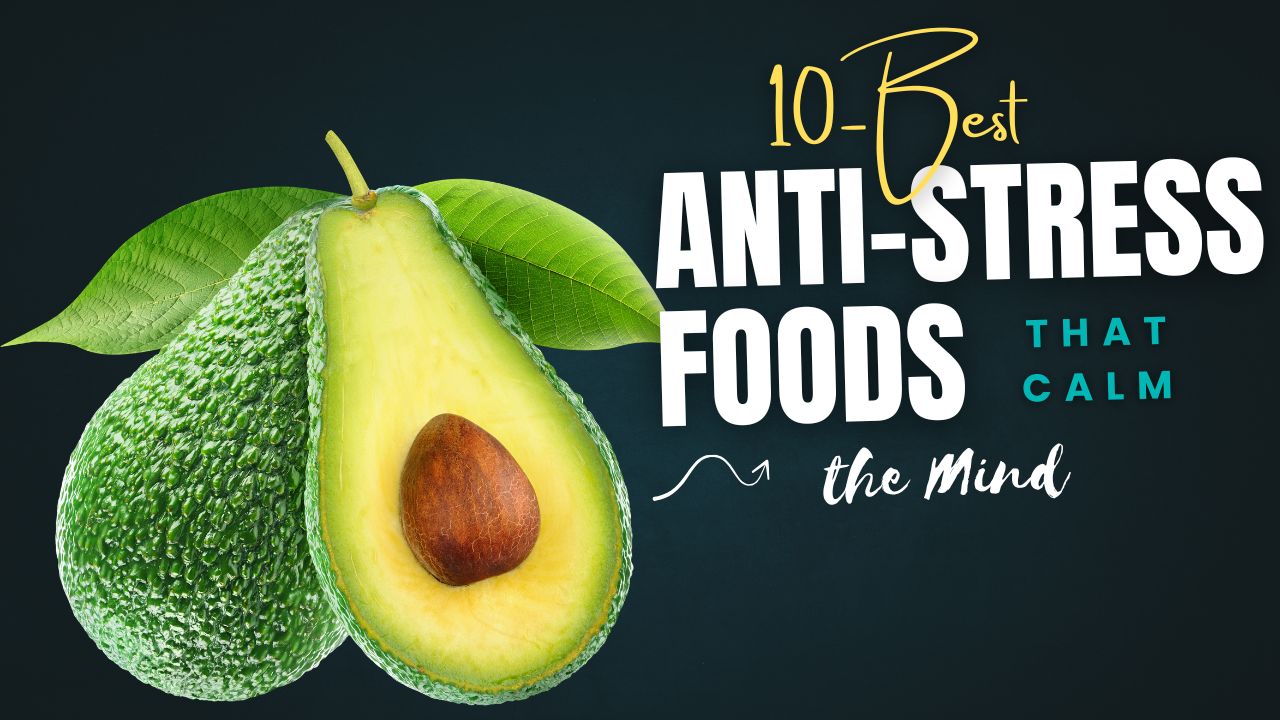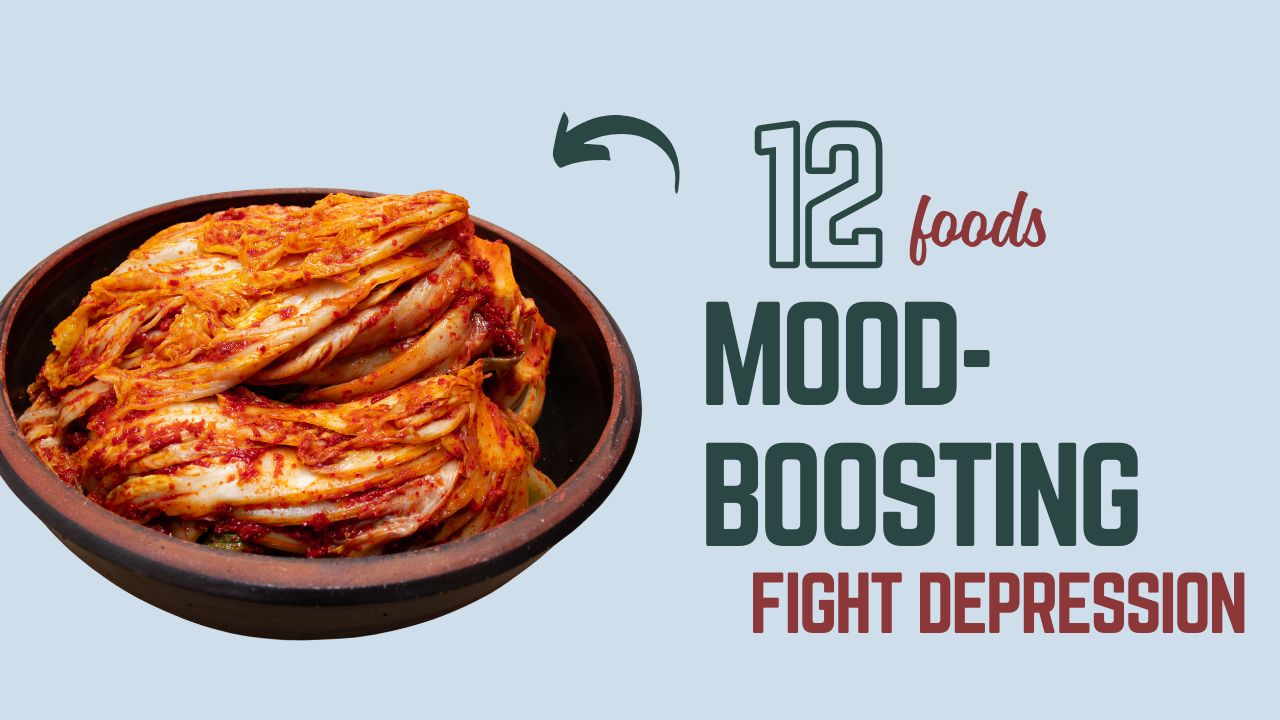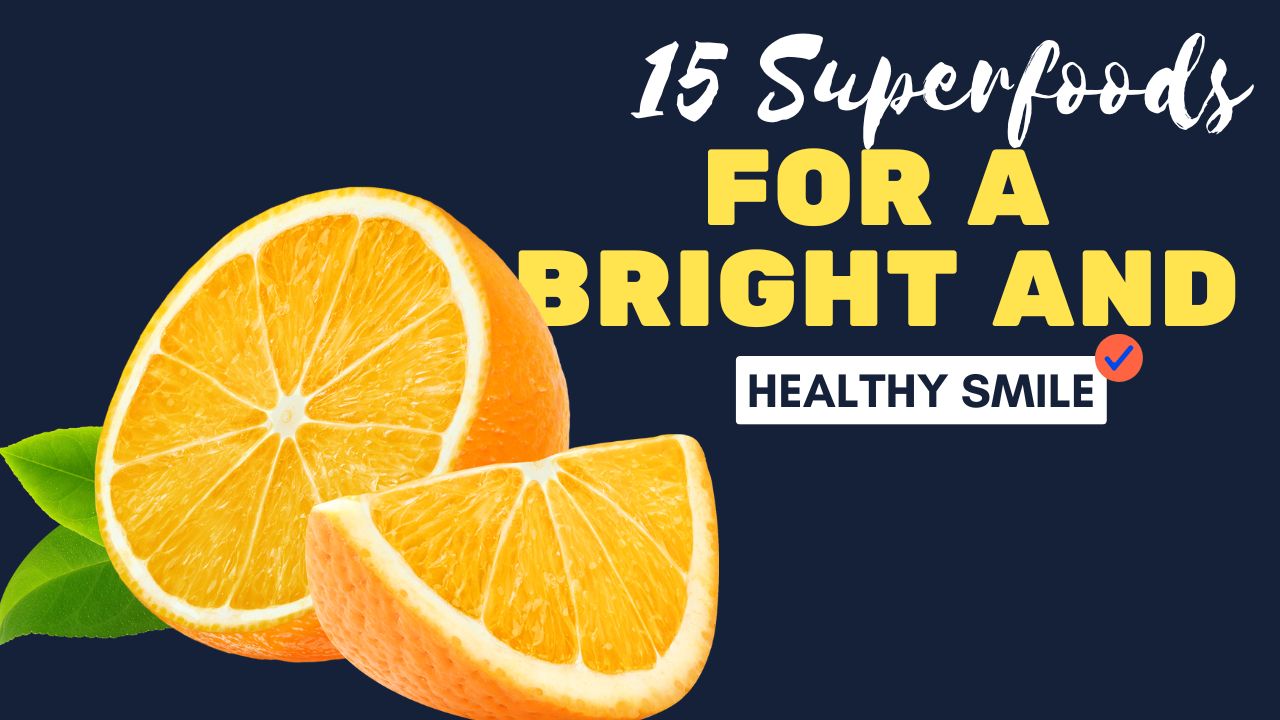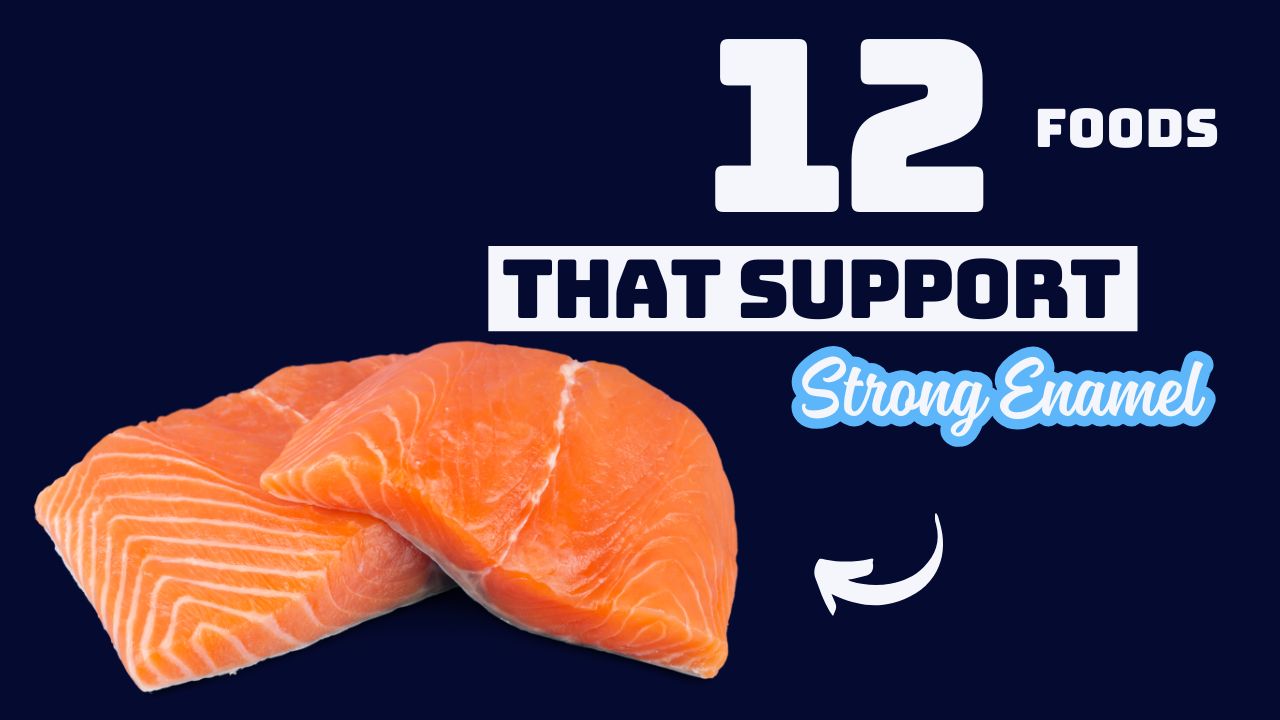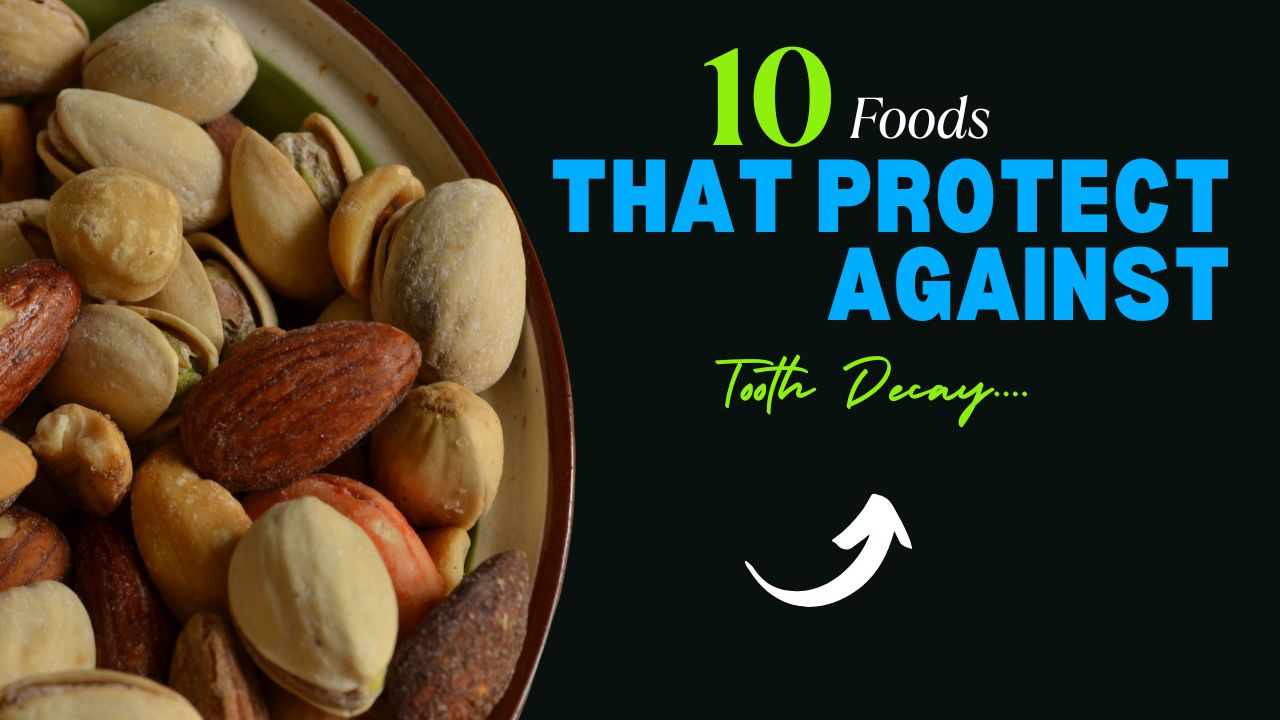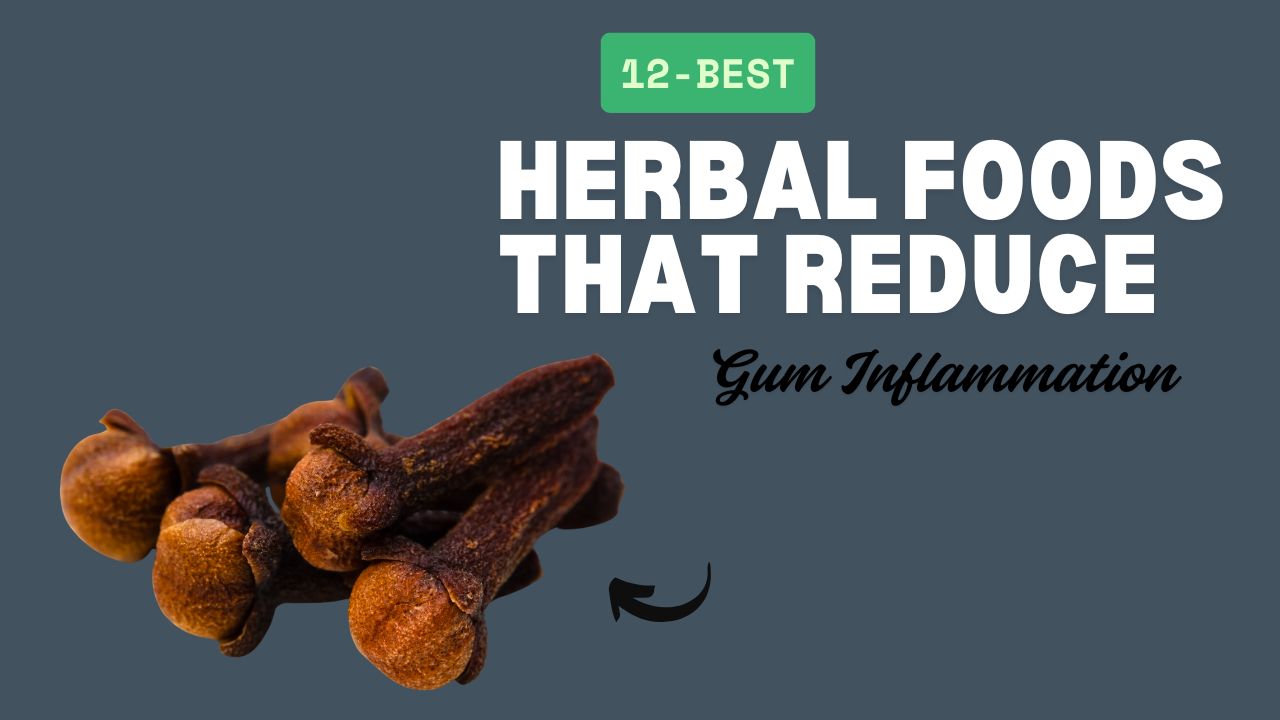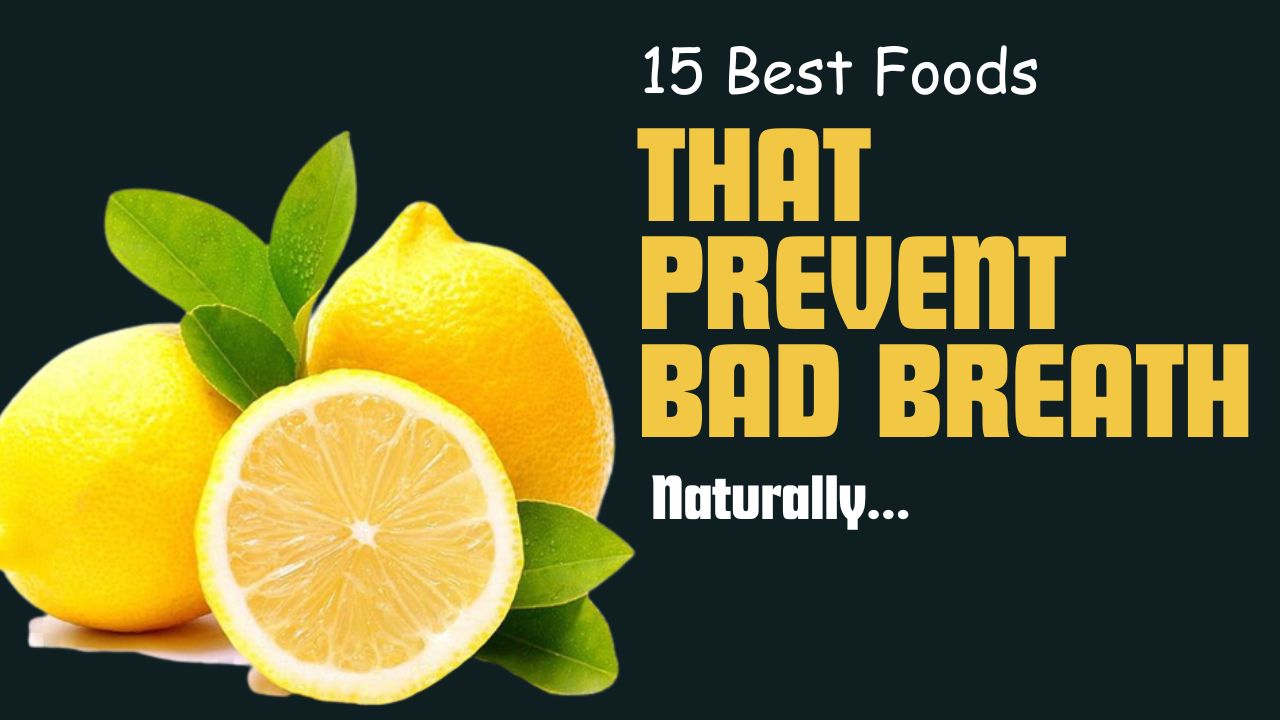Do you know that nearly 90% of the body’s serotonin is produced in the gut, not the brain? This surprising fact highlights just how powerful food can be in shaping our mood, energy levels, and overall emotional balance.
Serotonin, often called the “feel-good hormone,” plays a crucial role in regulating mood, sleep, and even digestion. Low serotonin levels are often linked to anxiety, depression, irritability, and lack of focus.
But here’s the good news: you don’t always need supplements or medications to support healthy serotonin production—your diet can do a lot of the work for you.
Certain foods are naturally rich in nutrients that either boost serotonin directly or support the brain chemicals required for its production.
In this post, we’ll explore 10 serotonin-boosting foods that can bring more calm, focus, and happiness into your daily life. For each, you’ll discover:
- The best ways to eat or use them.
- Who should eat or avoid them.
- Storage and buying tips.
- Do’s & don’ts for maximizing benefits.
- Possible side effects, if any.
Let’s dive into nature’s mood-enhancing menu.
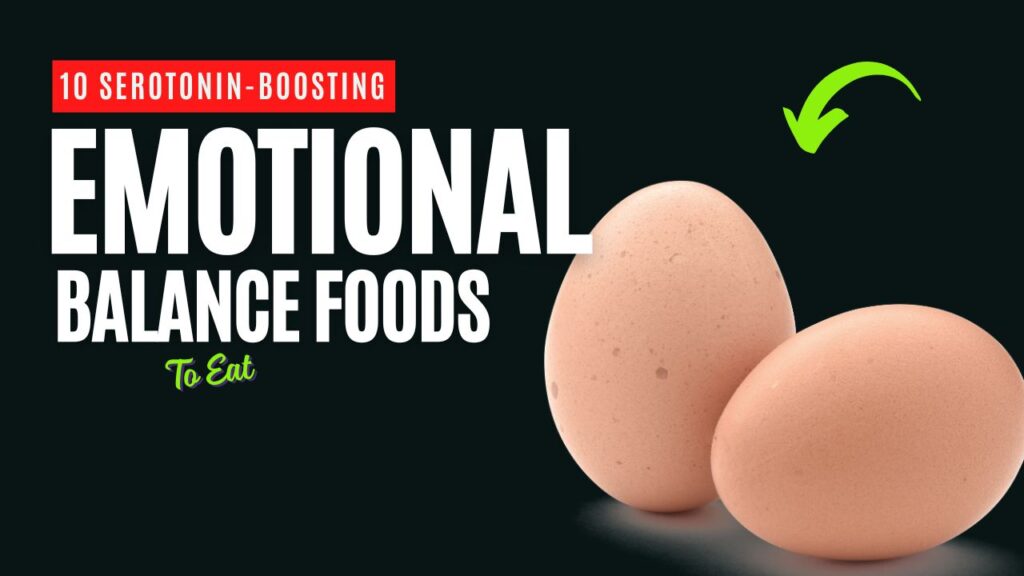
Table of Contents
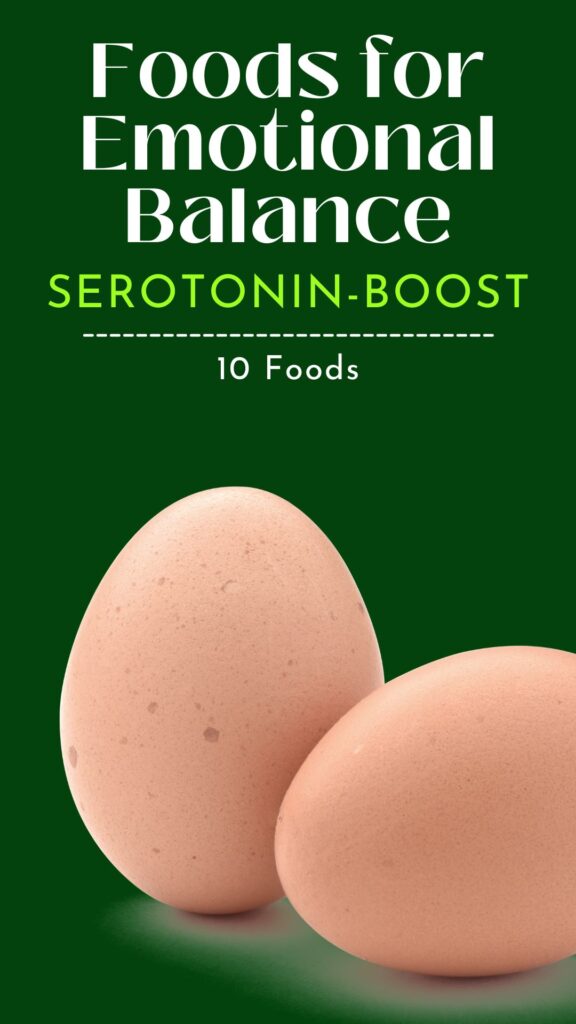
10 Serotonin-Boosting Foods To Eat
1. Salmon
Salmon is one of the richest sources of omega-3 fatty acids and vitamin D, both linked to improved serotonin levels. Omega-3 helps brain cells communicate better, while vitamin D supports serotonin production.
Best Ways to Eat or Use It
- Grilled or baked salmon with herbs.
- Salmon in sushi rolls.
- Smoked salmon on whole-grain toast.
- Add salmon chunks to salads for a protein-rich boost.
Who Should Eat / Avoid
- Good for: People with depression, students, and professionals under stress.
- Avoid/Limit if: You have seafood allergies or follow a vegetarian/vegan diet.
Storage & Buying Tips
- Choose wild-caught salmon for higher nutrient density.
- Store fresh salmon in the fridge for up to 2 days or freeze immediately.
Do’s & Don’ts
| ✅ Do | ❌ Don’t |
|---|---|
| Buy wild-caught for better nutrients | Store raw salmon for more than 2 days |
| Cook gently (bake/grill) to retain omega-3 | Deep fry—it reduces benefits |
Possible Side Effects
- Overconsumption may increase mercury exposure. Stick to 2–3 servings per week.
2. Eggs
Egg yolks are packed with tryptophan, the amino acid precursor to serotonin, along with vitamin B12 and choline, which support brain health.
Best Ways to Eat or Use It
- Boiled eggs as snacks.
- Omelets with spinach or mushrooms.
- Poached eggs on avocado toast.
Who Should Eat / Avoid
- Good for: Athletes, pregnant women, people seeking protein-rich meals.
- Avoid/Limit if: You have egg allergies or high cholesterol issues (limit yolks).
Storage & Buying Tips
- Choose free-range or omega-3-enriched eggs.
- Store in the refrigerator for up to 3 weeks.
Do’s & Don’ts
| ✅ Do | ❌ Don’t |
|---|---|
| Eat both yolk & white for full nutrition | Overcook, as it reduces nutrient quality |
| Buy fresh, organic eggs | Store eggs at room temperature for long periods |
Possible Side Effects
- Excessive consumption may raise cholesterol in sensitive individuals.
3. Nuts & Seeds
Nuts (like almonds and walnuts) and seeds (like pumpkin and sunflower seeds) are rich in tryptophan, magnesium, and healthy fats, all of which contribute to serotonin balance.
Best Ways to Eat or Use It
- Snack on a handful of raw nuts.
- Sprinkle seeds on smoothies or yogurt.
- Add chopped nuts to oatmeal.
Who Should Eat / Avoid
- Good for: Students, busy professionals, people with sugar cravings.
- Avoid/Limit if: You have nut allergies.
Storage & Buying Tips
- Store in airtight containers to prevent rancidity.
- Buy unsalted and raw for maximum health benefits.
Do’s & Don’ts
| ✅ Do | ❌ Don’t |
|---|---|
| Soak nuts overnight for better digestion | Eat salted/processed nut mixes daily |
| Mix different seeds for varied nutrients | Store in hot, humid areas |
Possible Side Effects
- Overeating can lead to excess calorie intake.
4. Bananas
Bananas are rich in vitamin B6 and natural sugars, which help convert tryptophan into serotonin efficiently.
Best Ways to Eat or Use It
- Add sliced bananas to oatmeal.
- Blend into smoothies with spinach and almond milk.
- Eat as a pre-workout snack.
Who Should Eat / Avoid
- Good for: Athletes, children, those struggling with low energy.
- Avoid/Limit if: You have high blood sugar concerns (consume moderately).
Storage & Buying Tips
- Buy slightly green bananas if you want them to last longer.
- Store at room temperature, away from direct sunlight.
Do’s & Don’ts
| ✅ Do | ❌ Don’t |
|---|---|
| Eat ripe bananas for quick energy | Rely solely on bananas for serotonin boost |
| Pair with protein for balanced nutrition | Store in the fridge before ripening |
Possible Side Effects
- Overeating may spike blood sugar levels.
5. Dark Chocolate
Dark chocolate contains flavonoids, magnesium, and serotonin precursors, making it one of the most popular natural mood boosters.
Best Ways to Eat or Use It
- A square of 70% dark chocolate as a snack.
- Melt into hot almond milk for a comforting drink.
- Add shavings to oatmeal or smoothie bowls.
Who Should Eat / Avoid
- Good for: People under stress, those craving sweets.
- Avoid/Limit if: Sensitive to caffeine or trying to cut sugar.
Storage & Buying Tips
- Choose at least 70% cocoa content.
- Store in a cool, dry place away from sunlight.
Do’s & Don’ts
| ✅ Do | ❌ Don’t |
|---|---|
| Eat moderate portions (20–30 g/day) | Eat milk chocolate—it’s high in sugar |
| Pair with nuts for extra nutrition | Overeat late at night if caffeine-sensitive |
Possible Side Effects
- Overeating may lead to weight gain and disrupted sleep.
6. Spinach
Spinach is high in magnesium and folate, essential for serotonin production and stress reduction.
Best Ways to Eat or Use It
- Add to green smoothies.
- Steam lightly as a side dish.
- Toss into omelets or salads.
Who Should Eat / Avoid
- Good for: People with stress, fatigue, or anemia.
- Avoid/Limit if: You have kidney stones (high in oxalates).
Storage & Buying Tips
- Buy fresh, crisp leaves without yellowing.
- Store in a paper towel-lined container in the fridge.
Do’s & Don’ts
| ✅ Do | ❌ Don’t |
|---|---|
| Eat raw or lightly cooked | Overcook—it loses nutrients |
| Wash thoroughly before use | Store wet leaves—it promotes spoilage |
Possible Side Effects
- High oxalate content may cause kidney issues if consumed excessively.
7. Oats
Oats provide a slow release of glucose, which stabilizes mood and helps serotonin stay balanced.
Best Ways to Eat or Use It
- Classic oatmeal with fruits.
- Overnight oats with yogurt.
- Add oat flour to baked goods.
Who Should Eat / Avoid
- Good for: People with mood swings, students, weight-watchers.
- Avoid/Limit if: You have gluten sensitivity (choose gluten-free oats).
Storage & Buying Tips
- Store in an airtight container in a cool, dry place.
- Buy steel-cut or rolled oats for more nutrition.
Do’s & Don’ts
| ✅ Do | ❌ Don’t |
|---|---|
| Add fruits & seeds for extra nutrients | Buy instant oats—they’re less nutritious |
| Use oats as a base for energy bars | Store in humid areas |
Possible Side Effects
- Can cause bloating in those with gluten intolerance.
8. Pineapple
Pineapple contains bromelain, an enzyme that may improve mood, along with vitamin C to reduce stress.
Best Ways to Eat or Use It
- Fresh pineapple slices as snacks.
- Pineapple chunks in smoothies.
- Grilled pineapple with chicken or fish.
Who Should Eat / Avoid
- Good for: Athletes, people with weak immunity.
- Avoid/Limit if: Acid reflux or sensitive teeth.
Storage & Buying Tips
- Choose pineapples that are slightly soft with a sweet aroma.
- Store cut pineapple in the fridge for up to 3 days.
Do’s & Don’ts
| ✅ Do | ❌ Don’t |
|---|---|
| Eat fresh, not canned | Consume on an empty stomach (too acidic) |
| Pair with protein foods | Overeat—it may irritate mouth |
Possible Side Effects
- May cause acidity or mouth irritation if consumed excessively.
9. Fermented Foods (Yogurt, Kimchi, Sauerkraut)
Fermented foods are rich in probiotics that support gut health, which directly influences serotonin production.
Best Ways to Eat or Use It
- Yogurt with fruit and seeds.
- Kimchi with rice dishes.
- Sauerkraut as a side to sandwiches.
Who Should Eat / Avoid
- Good for: People with digestive issues, those under stress.
- Avoid/Limit if: Lactose intolerant (choose dairy-free options).
Storage & Buying Tips
- Store yogurt in the fridge, consume before expiry.
- Fermented foods like kimchi and sauerkraut last longer if refrigerated.
Do’s & Don’ts
| ✅ Do | ❌ Don’t |
|---|---|
| Choose live-culture yogurts | Buy sweetened, flavored yogurts |
| Add probiotics daily in moderation | Overeat—can cause bloating |
Possible Side Effects
- Excessive intake may cause gas and bloating.
10. Turkey
Turkey is famously known for being rich in tryptophan, which helps the body produce serotonin.
Best Ways to Eat or Use It
- Grilled turkey breast.
- Turkey sandwiches with whole-grain bread.
- Ground turkey in soups and stews.
Who Should Eat / Avoid
- Good for: People with anxiety, athletes, and those needing lean protein.
- Avoid/Limit if: You’re vegetarian/vegan or have poultry allergies.
Storage & Buying Tips
- Store fresh turkey in the fridge for up to 2 days or freeze.
- Buy lean cuts for better nutrition.
Do’s & Don’ts
| ✅ Do | ❌ Don’t |
|---|---|
| Eat lean turkey cuts | Deep fry—it reduces health value |
| Pair with veggies for balanced meals | Store raw turkey for long periods |
Possible Side Effects
- Excessive intake may cause digestive discomfort.
Conclusion
Boosting your mood doesn’t always require complicated strategies or expensive supplements—sometimes, it’s as simple as making the right choices at mealtime.
From omega-3-rich salmon to gut-friendly fermented foods, these 10 serotonin-boosting foods provide the nutrients your body needs for emotional balance, better focus, and a calmer state of mind.
Next time you’re feeling low, consider reaching for a banana, a handful of nuts, or a square of dark chocolate instead of processed snacks. Small daily changes can create long-term emotional stability.
Which of these serotonin-boosting foods will you try first? Share your favorite way to enjoy them in the comments below!
Frequently Asked Questions (FAQs)
Can food really increase serotonin levels?
Yes. While foods don’t contain serotonin directly, many provide tryptophan, vitamins, minerals, and probiotics that support serotonin production in the brain and gut.
How long does it take for serotonin-boosting foods to work?
It varies. Some foods like bananas or dark chocolate may provide a quick mood lift within hours, while consistent intake of omega-3-rich foods or fermented foods supports long-term serotonin balance.
Are supplements better than serotonin-boosting foods?
Supplements can help in certain cases, but whole foods are safer, more sustainable, and provide additional nutrients beyond serotonin support.
Can too much serotonin from food cause side effects?
No. Foods only supply precursors and nutrients for serotonin production. Serotonin syndrome (too much serotonin) usually occurs with certain medications, not food.
Which food is the best for serotonin?
There’s no single “best” food. However, salmon, eggs, bananas, dark chocolate, and nuts are among the most effective for supporting serotonin naturally.
Are these foods safe for everyone?
Most people can enjoy them safely. However, individuals with allergies, diabetes, kidney issues, or specific dietary restrictions should consume them mindfully.
Can vegetarians and vegans boost serotonin with food?
Absolutely. Plant-based options like oats, spinach, bananas, nuts, seeds, and fermented foods provide excellent serotonin support.
How often should I eat serotonin-boosting foods?
Daily inclusion is best. Rotate different foods from the list to get a variety of nutrients and maximize benefits.
